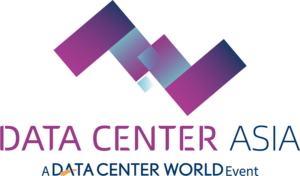As the digital landscape continues to evolve, businesses are increasingly adopting cloud computing solutions to enhance flexibility and performance. One emerging model that offers significant advantages is the distributed cloud. Understanding what distributed cloud means and its benefits is essential for organizations looking to optimize their operations.
By the way, Data Center Asia 2025 is now open for registration with free admission fee for industry visitors. Connect with industry leaders in person and explore the latest innovations in distributed cloud.

What Is Distributed Cloud?
Distributed cloud refers to a cloud computing model where services and resources are distributed across multiple locations but managed centrally. This means that data and applications can reside in various geographic areas while still being controlled from a single point. This approach allows organizations to leverage the benefits of both private and public clouds, enhancing scalability and resource efficiency.
In the context of data center exhibitions, such as those at Data Center Asia, the distributed cloud model is a hot topic. The flexibility offered by distributed cloud systems can help companies adapt to changing market demands while ensuring compliance with local regulations regarding data storage and processing.
Advantages of Distributed Cloud
One of the primary benefits of distributed cloud is improved latency. By placing resources closer to end users, organizations can reduce the time it takes for data to travel, leading to faster response times and better overall performance. This is particularly important for applications requiring real-time data processing, such as online gaming and financial services.
Additionally, distributed cloud enhances redundancy and reliability. If one location experiences an issue, services can seamlessly shift to another data center, ensuring continuous availability. This resilience is vital for businesses that cannot afford downtime, making the distributed cloud an attractive option.
Moreover, distributed cloud supports localized compliance. With varying regulations around data sovereignty, organizations can store data in specific regions to meet legal requirements. This capability becomes particularly relevant in data center exhibition Asia, where compliance with local laws is crucial for operational success.
Conclusion
The distributed cloud model offers numerous benefits, including improved latency, enhanced reliability, and better compliance with local regulations. As the data center ecosystem continues to grow—especially in the Asia-Pacific region, projected to become the world’s largest data center market—staying informed about emerging technologies is essential. Participating in events like Data Center Asia can provide valuable insights into the distributed cloud and other innovations shaping the industry. Attending this data center exhibition will enable professionals to learn from experts and explore the latest trends, ultimately driving their success in the digital age.



